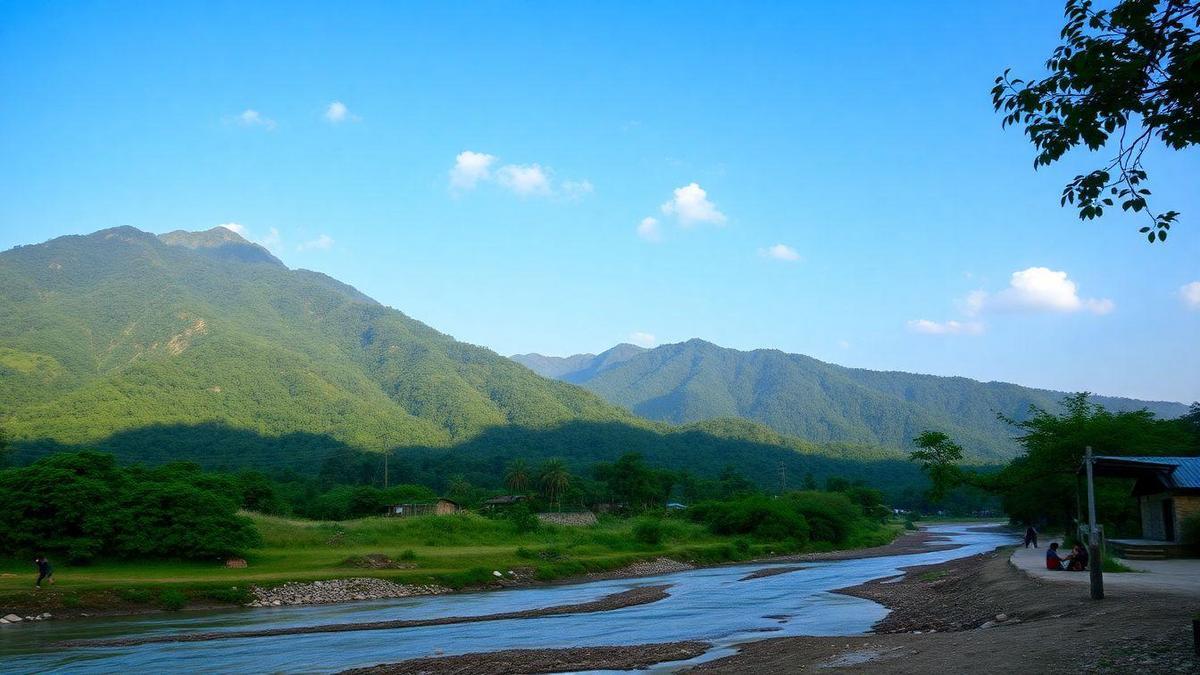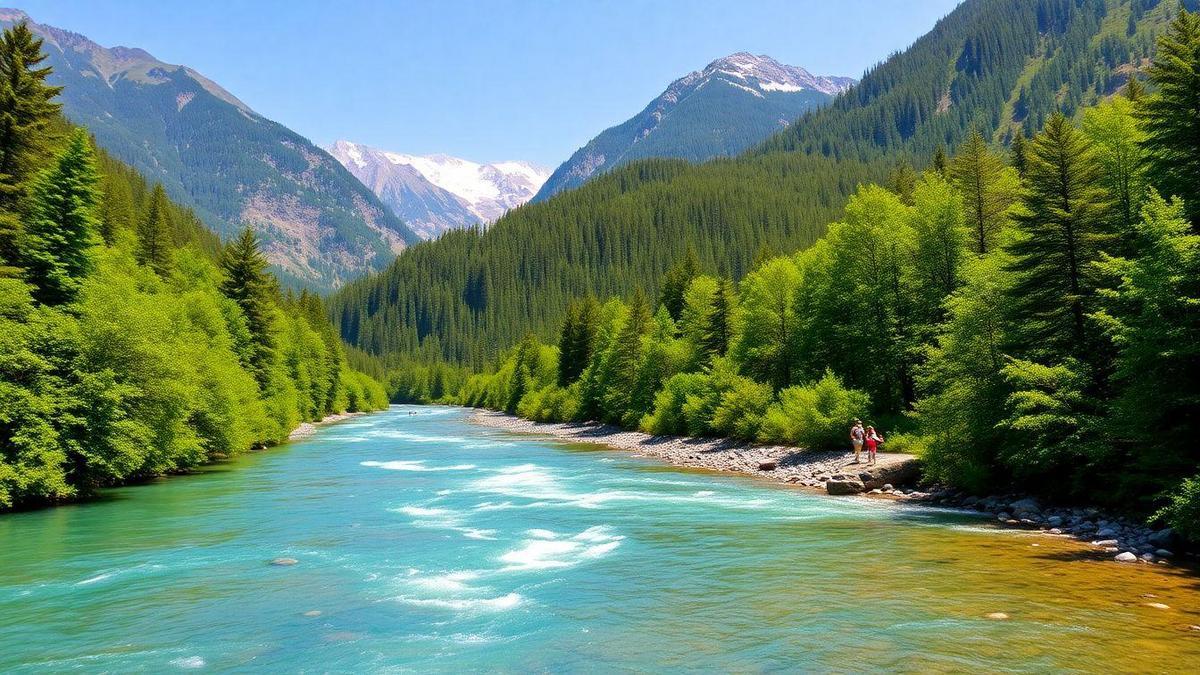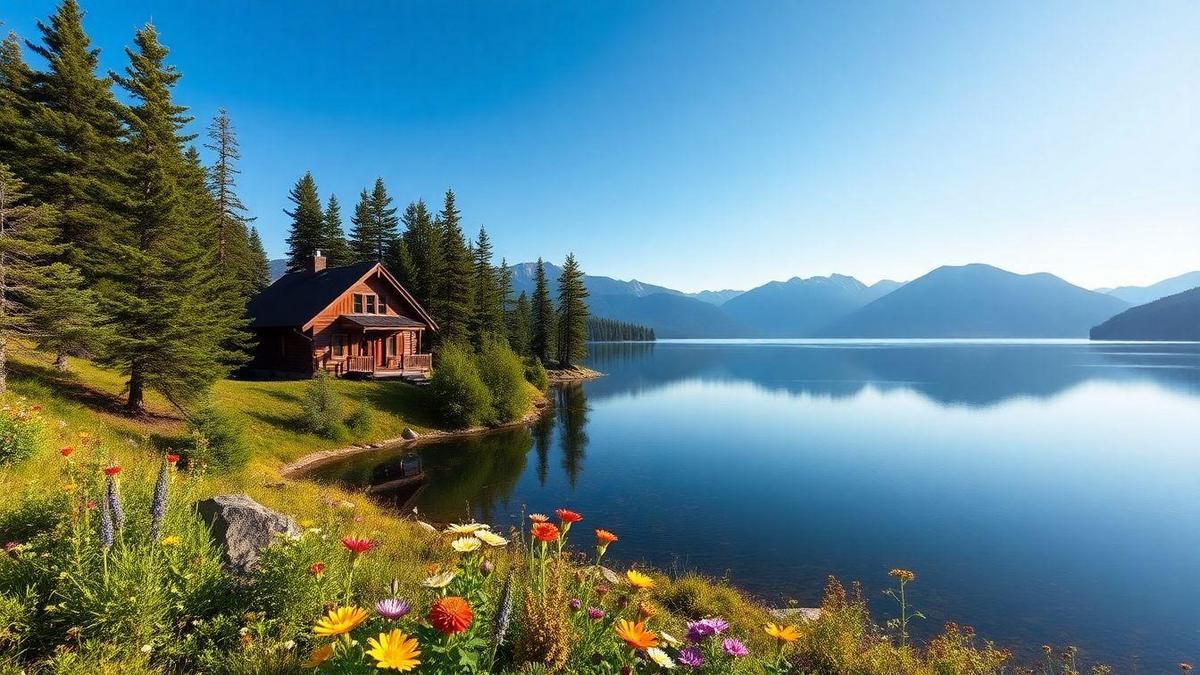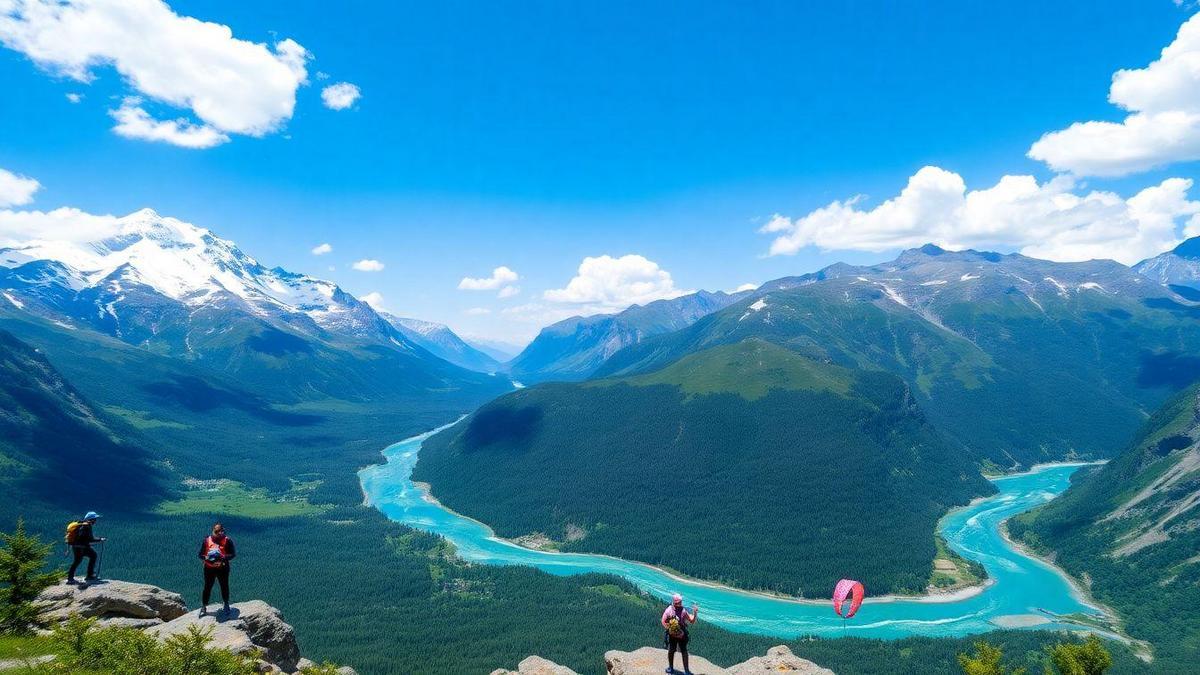
Discovering Cultural Experiences Unique to Mountainous Regions
Embrace Local Festivals and Traditions
When you visit mountainous areas, you’ll find that local festivals can be a true feast for the senses. These celebrations are a great way to dive into the heart of the community. Imagine vibrant parades with people dressed in traditional clothing, music echoing through the valleys, and delicious local food wafting through the air. You can taste the culture in every bite!
Here are some festivals you might want to check out:
| Festival Name | Location | What to Expect |
|---|---|---|
| Mountain Harvest Festival | Colorado, USA | Local crafts, food stalls, and music. |
| Snowy Mountain Festival | Canada | Winter sports, ice sculptures, and fun. |
| Andes Festival | Peru | Traditional dances and local cuisine. |
Participating in these events allows you to connect with locals and understand their way of life. You’ll see how their customs are shaped by the mountains and rivers surrounding them.
Explore Indigenous Cultures and Their Stories
Indigenous cultures in mountainous regions hold a wealth of stories and traditions. By engaging with these communities, you can learn about their history and the deep respect they have for nature. You might hear tales of how their ancestors lived in harmony with the land.
Consider visiting local museums or cultural centers. They often showcase artifacts and art that tell the story of the people who have lived there for generations. You’ll find that these experiences are not just enlightening—they’re life-changing.
How Festivals Celebrate Mountain Heritage
Festivals often highlight the rich heritage of these regions. They serve as a reminder of the struggles and triumphs of the people. For instance, in many mountain communities, you’ll find that festivals include traditional music and dance that have been passed down through generations.
Here’s a glimpse of how festivals celebrate this heritage:
| Element | Description |
|---|---|
| Music | Traditional songs that tell stories. |
| Dance | Folk dances that showcase local customs. |
| Food | Dishes made from local ingredients. |
When you immerse yourself in these celebrations, you’re not just a spectator; you’re part of a living history. You’ll leave with memories that will last a lifetime.
Adventure Tourism: A Gateway to Cultural Experiences Unique to Mountainous Regions and Their Rivers
Hiking Scenic Trails and Learning Local History
When you lace up your hiking boots and hit the trails, you’re stepping into a world of wonder and discovery. The mountains and rivers are not just beautiful; they hold stories waiting to be told. As you walk along scenic paths, take a moment to soak in the surroundings. You might find information boards that share fascinating bits of local history. These trails often lead you through villages and landmarks that have shaped the culture of the region.
Picture this: you’re hiking a trail that winds along a river, and suddenly you come across an old stone bridge. A sign nearby explains it was built by local artisans centuries ago. You can almost feel the hands that crafted it. This is what makes hiking special—it’s not just about the exercise; it’s about connecting with the past. For those looking for more outdoor fun, exploring popular outdoor activities can enhance your experience.
Engaging in Adventure Sports with Cultural Roots
Adventure sports can be a thrilling way to dive into the culture of mountainous regions. From white-water rafting to rock climbing, these activities often have deep roots in local traditions. For example, in some areas, rafting is not just a sport but a way to celebrate the river’s importance to the community. To discover the best spots for thrill-seeking, consider checking out top rafting locations.
Imagine gliding over rapids, the water splashing around you, while your guide shares stories about how the river has shaped the lives of those who live nearby. You’re not just enjoying the thrill; you’re becoming part of a narrative that connects you to the land and its people.
The Connection Between Adventure and Cultural Learning
Adventure tourism is more than just fun; it’s a bridge to understanding. Engaging in outdoor activities allows you to experience the values and traditions of a culture firsthand. Here’s how:
| Adventure Activity | Cultural Insight |
|---|---|
| Hiking | Learn about local flora and fauna |
| Rafting | Understand river significance |
| Rock Climbing | Discover ancient climbing techniques |
| Local Festivals Participation | Experience traditional celebrations |
By participating in these activities, you’re not just a visitor; you become part of the community’s story. You’ll find that every climb, every paddle, and every step you take is filled with meaning and history.
River Heritage: Understanding the Lifeblood of Communities
The Role of Rivers in Local Traditions
Rivers are more than just flowing water; they are the heartbeat of many communities. They bring life, sustenance, and a sense of belonging. You might find that rivers are often woven into the tapestry of local traditions. In many cultures, rivers are seen as sacred, celebrated in stories, songs, and rituals. For instance, in some Indigenous cultures, rivers are considered the veins of the earth, connecting people to their ancestors and the land.
River Festivals: Celebrating Water and Culture
One of the best ways to experience the richness of river heritage is to participate in river festivals. These events are a celebration of water, culture, and community. You can enjoy music, dance, and delicious food while connecting with locals who share their stories and traditions.
| Festival Name | Location | Highlights |
|---|---|---|
| River Fest | Smalltown, USA | Live music, boat races, food stalls |
| Waterway Celebration | River City, UK | Cultural performances, art exhibits |
| River Carnival | Coastal Village | Parades, traditional games |
These festivals not only bring joy but also strengthen bonds within the community. They remind us of the importance of rivers in our lives.
How Rivers Shape Cultural Identity
Rivers play a crucial role in shaping cultural identity. They connect people to their land and history. For many, rivers are a source of pride and a symbol of resilience. You may find that the stories told by the riverside reflect the struggles and triumphs of those who live nearby.
In some regions, rivers are central to daily life. They provide water for drinking, farming, and fishing. This reliance on rivers fosters a deep respect for nature and a commitment to preserving these vital resources.
In summary, rivers are not just physical features; they are the lifeblood of communities, enriching lives and shaping identities.
Traditional Crafts: A Window into Mountain Cultures
Discovering Unique Handicrafts from Local Artisans
When you visit mountainous regions, you’ll find that handicrafts are more than just items for sale; they tell stories of the people and their traditions. Each piece is a labor of love, shaped by the hands of local artisans who pour their hearts into their work. From woven baskets to hand-carved wooden figurines, these crafts reflect the culture and environment of the area.
Imagine walking through a small village and stumbling upon a quaint workshop. You might see an artisan skillfully crafting a colorful rug, using techniques passed down through generations. These items are not just beautiful; they are a connection to the land and its history.
Participating in Craft Workshops and Learning Techniques
One of the best ways to truly appreciate these crafts is by getting your hands dirty! Many local artisans offer workshops where you can learn their craft firsthand. Whether it’s pottery, weaving, or painting, you’ll gain a deeper understanding of their techniques and the time it takes to create something special. For those interested in the cultural significance of these crafts, exploring unforgettable mountain experiences can provide further insights.
These workshops can be a great way to meet locals and hear their stories. You might find yourself laughing, sharing, and creating alongside them. It’s a chance to step away from your daily routine and immerse yourself in something new.
The Importance of Craft in Cultural Preservation
Crafting holds a special place in preserving culture. It’s a way to keep traditions alive and pass them on to future generations. When you buy a handmade item, you’re not just taking home a souvenir; you’re supporting a way of life.
Here’s a simple table to illustrate the importance of crafts in cultural preservation:
| Craft Type | Cultural Significance |
|---|---|
| Weaving | Tells stories through patterns |
| Pottery | Reflects daily life and rituals |
| Wood Carving | Represents local legends and myths |
By engaging with these crafts, you help keep the spirit of the mountains and rivers alive. You become a part of the story, ensuring that these beautiful traditions continue to thrive.
Ecological Conservation: Merging Nature and Culture
Understanding the Balance Between Nature and Culture
When you think about the beautiful mountains and serene rivers, it’s easy to get lost in their breathtaking views. However, these natural wonders are more than just pretty sights; they are a vital part of our culture and history. The balance between nature and culture is essential. You can enjoy the stunning landscapes while also respecting the traditions and stories that come from them.
Each mountain and river has its own tale. Local communities often have deep connections to these places, celebrating their significance through festivals, art, and stories. By understanding these connections, you can appreciate the beauty around you even more. When you visit, take a moment to learn about the local customs and how they relate to the environment. This connection can turn a simple trip into a memorable adventure.
Community Efforts in Protecting Mountain and River Environments
Communities play a vital role in protecting the mountains and rivers you cherish. These groups often come together to create conservation programs. They work hard to keep the environment clean and safe for everyone. Here are some ways communities are making a difference:
| Community Efforts | Impact |
|---|---|
| Clean-up Drives | Remove trash and pollution from rivers and trails. |
| Education Programs | Teach locals and visitors about conservation. |
| Cultural Festivals | Celebrate nature and raise awareness about its importance. |
When you join these community efforts, you become part of something bigger. You help protect the beauty of the mountains and rivers for future generations. Plus, you get to meet locals who share your passion for nature.
How Conservation Efforts Enhance Cultural Experiences Unique to Mountainous Regions and Their Rivers
Conservation efforts do more than just protect the environment; they also enrich your cultural experiences. When you engage in these activities, you discover the stories behind the landscapes. You’ll find that many traditions are tied to the land itself. For example, rivers often serve as gathering places for storytelling and sharing meals, while mountains are seen as sacred spaces.
By participating in conservation, you can witness firsthand how these efforts breathe life into local cultures. You might find yourself at a festival celebrating the river, enjoying traditional music, and tasting local dishes. These experiences can make your visit truly unforgettable.
Cultural Storytelling: Sharing the Heart of Mountain Life
Listening to Local Legends and Folklore
When you visit mountainous regions, listening to local legends can be a magical experience. Each story paints a picture of the land and its people. You might hear tales of brave warriors, mystical creatures, or wise elders who shaped the community. These stories often carry lessons and values that resonate with the heart of mountain life.
Imagine sitting around a crackling fire, the night sky filled with stars, as a local elder shares a story that has been passed down through generations. You can almost feel the spirit of the mountains in every word. These legends are not just stories; they are the lifeblood of the community, connecting you to the land in a way that feels both profound and personal.
Engaging with Storytellers to Learn About History
Engaging with storytellers is a wonderful way to dive deeper into the rich history of the mountains and rivers. Many local guides are passionate about sharing their culture. They often have a treasure trove of knowledge about their ancestors, traditions, and the environment.
Consider joining a storytelling session in a village or community center. You might find yourself captivated by a storyteller who weaves history with humor and emotion. Here’s a quick look at what you can expect:
| Activity | Description |
|---|---|
| Storytelling Events | Gather with locals for shared stories. |
| Guided Tours | Explore historical sites while hearing their tales. |
| Cultural Workshops | Participate in crafts or cooking that relate to stories. |
This engagement not only enriches your experience but also creates connections with the people and their heritage.
The Power of Stories in Preserving Cultural Heritage
Stories have a special way of keeping culture alive. They help you understand the values and beliefs of the people who have lived in these mountains for centuries. By sharing their stories, locals preserve their identity and pass on knowledge to future generations.
When you listen to these tales, you become part of a larger story. You help keep the culture vibrant and alive. Every time you share what you’ve learned, you contribute to the legacy of these beautiful regions.
Frequently asked questions
What are cultural experiences unique to mountainous regions and their rivers?
You can enjoy local traditions, music, and dances. You might find unique foods made from local ingredients. Don’t miss festivals celebrating the beauty of mountains and rivers!
How can I connect with local communities in these areas?
Join local tours or workshops. Talk to residents, ask questions, and learn about their lives. Many are happy to share stories and invite you to group activities.
What kind of outdoor activities can I do in mountainous areas?
You can hike, fish, or kayak in rivers. Try rock climbing or bird watching, too! Each activity can introduce you to local culture and natural beauty. For a comprehensive look at activities, check out popular outdoor activities.
Are there specific festivals in mountainous regions I should know about?
Yes! Look for harvest festivals, river cleanup days, or cultural fairs. Many mountain towns celebrate traditions that are full of music, food, and fun!
How can I learn about the history of these regions?
Visit local museums or heritage centers. Take guided tours to discover stories of the land and its people. Reading local literature can also open your eyes!


